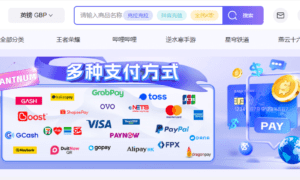Introduction
In today’s interconnected economy, businesses operate beyond borders — working with suppliers, employees, and partners across continents. Yet, many organizations still face hurdles due to outdated banking systems that slow down transactions, charge high fees, and lack flexibility.
The rise of International Payments powered by fintech innovation is changing that reality. Modern digital solutions are reshaping how businesses move money across the globe — faster, cheaper, and more securely than ever before.
The Shift from Traditional Banking to Modern Payment Systems
For decades, cross-border transactions relied on a chain of intermediaries — each taking a slice of commission and adding to settlement time. This legacy system created delays and reduced liquidity, restricting global operations.
Today, International Payments have entered a new era. Thanks to advanced financial technologies, companies can now transfer funds internationally within minutes, not days. This speed and efficiency enhance resource management and enable smoother trade operations worldwide.
The Evolution of Cross-Border Transactions
Modern payment platforms have replaced complex multi-step banking systems with real-time processing. Businesses no longer need to rely on multiple agents or wait for manual approvals.
The availability of multi-currency support and live exchange rates gives companies more control over their finances. Whether paying suppliers in euros, yen, or dollars, businesses can now complete transactions quickly while maintaining transparency and cost efficiency.
Why Speed Matters in Global Business
In global trade, time is money — and payment delays can make or break a business. Fast, reliable International Payments ensure that suppliers are paid promptly, keeping production lines running smoothly and maintaining trust within the supply chain.
Quick compensation for remote teams and overseas contractors also boosts morale and retention. Companies that prioritize payment speed gain a reputation for reliability, improving relationships and ensuring steady growth.
Security and Compliance in International Transactions
As digital transactions grow, so do security concerns. The best modern International Payments systems integrate advanced encryption, AI-powered fraud detection, and compliance frameworks such as PCI DSS, SOC 2, and GDPR.
Every transaction is verified and traceable, ensuring transparency while safeguarding against cyber threats. For businesses operating internationally, this level of protection builds confidence and trust in their financial operations.
Reducing Costs and Enhancing Cash Flow
Traditional banking often requires maintaining multiple foreign accounts or pre-funding balances, locking up valuable capital. Modern International Payments eliminate these barriers by enabling businesses to send money directly from a single account.
This not only improves cash flow but also reduces operational costs. With lower transaction fees and fewer intermediaries, companies can save significantly over time — freeing up capital for expansion, innovation, and investment.
Building Global Trust Through Reliable Payments
Consistency is key in international business. Companies that make on-time payments establish credibility and strengthen relationships with global partners. Timely transactions enhance cooperation, reduce disputes, and help businesses negotiate better terms in future contracts.
Suppliers and employees who receive payments without delay develop long-term loyalty. In competitive global markets, this reliability becomes a strategic advantage, opening doors to new opportunities and collaborations.
Improving Business Forecasting and Financial Planning
Fast and transparent International Payments also lead to better financial visibility. When transactions settle instantly, businesses can manage cash flow in real time, forecast expenses accurately, and plan strategically for upcoming projects or expansions.
Predictable payment schedules allow both senders and receivers to operate efficiently, supporting stability and growth on both sides of the transaction.
Smart Technology Behind Global Payments
Fintech innovation has made International Payments not just faster but smarter. AI-driven platforms can automatically detect the most cost-effective routes, apply real-time currency conversions, and ensure compliance without manual effort.
Businesses using these technologies gain more than speed — they achieve better control, transparency, and efficiency across their financial operations.
The Competitive Edge of Modern Payment Systems
Adopting new digital payment technologies isn’t just a convenience — it’s a competitive necessity. Companies that leverage fast, secure International Payments stand out in global markets.
They operate more smoothly, avoid costly delays, and gain the flexibility to scale globally. In contrast, businesses relying on outdated systems risk falling behind competitors that move money and make decisions faster.
Conclusion: The Future of International Business Starts Now
Fast, affordable, and secure International Payments are transforming the way businesses interact globally. By embracing modern solutions, companies can save time, reduce expenses, and optimize cash flow — all while building trust and credibility worldwide.
The digital revolution in payments isn’t on the horizon — it’s already here. Businesses that adapt today will lead tomorrow’s global marketplace.
Key Takeaways
-
International Payments powered by fintech are faster, cheaper, and more secure than traditional banking.
-
Real-time transactions improve liquidity, trust, and efficiency.
-
Businesses save costs by eliminating unnecessary intermediaries.
-
Secure systems with compliance frameworks ensure fraud prevention and transparency.
-
Fast payments enhance global reputation and strengthen partnerships.

































